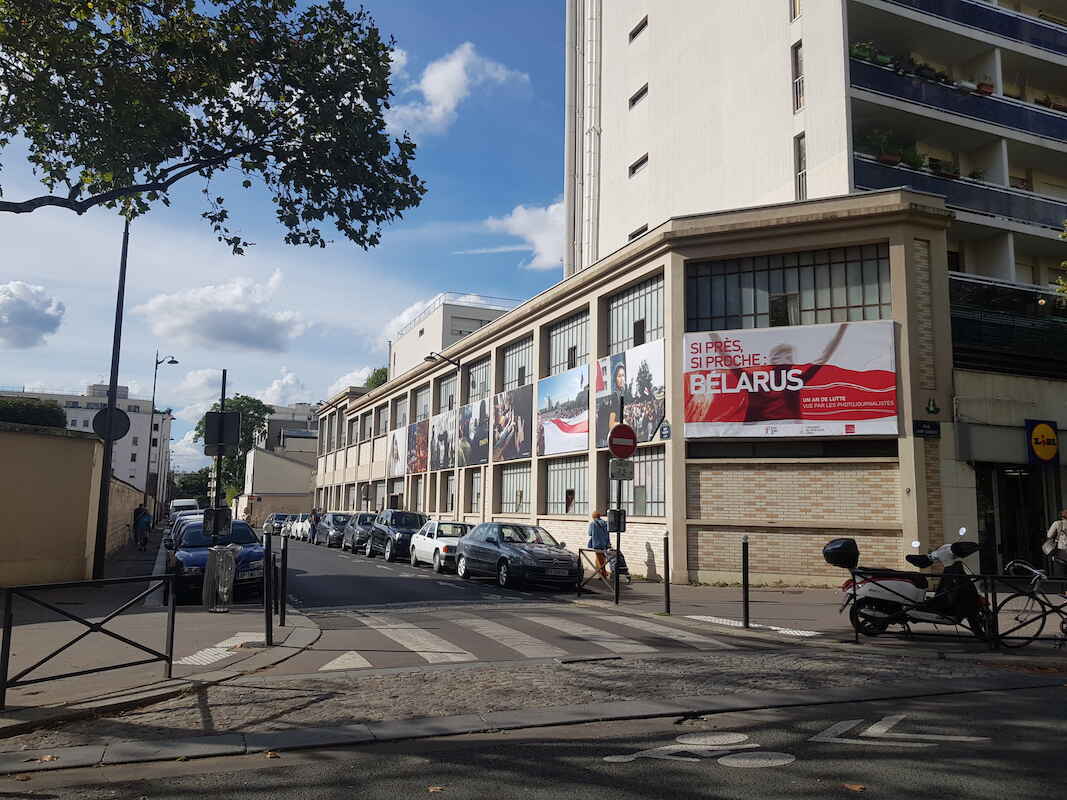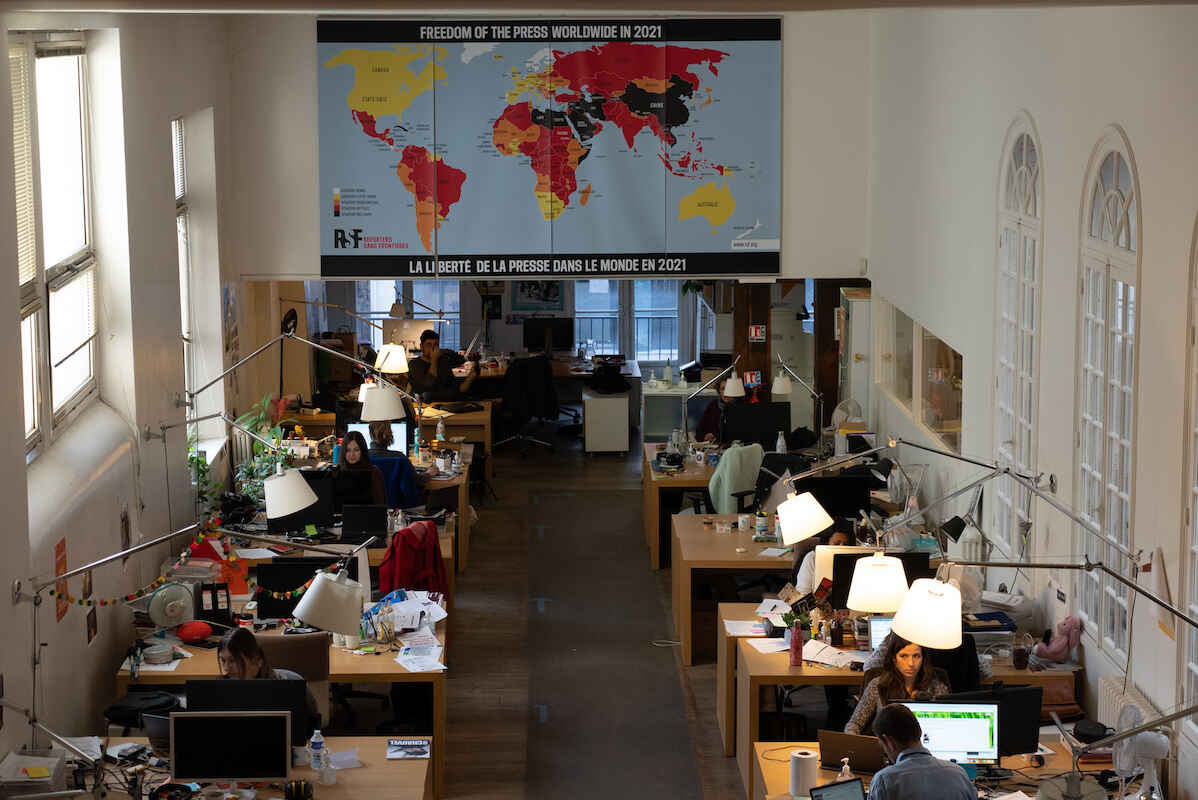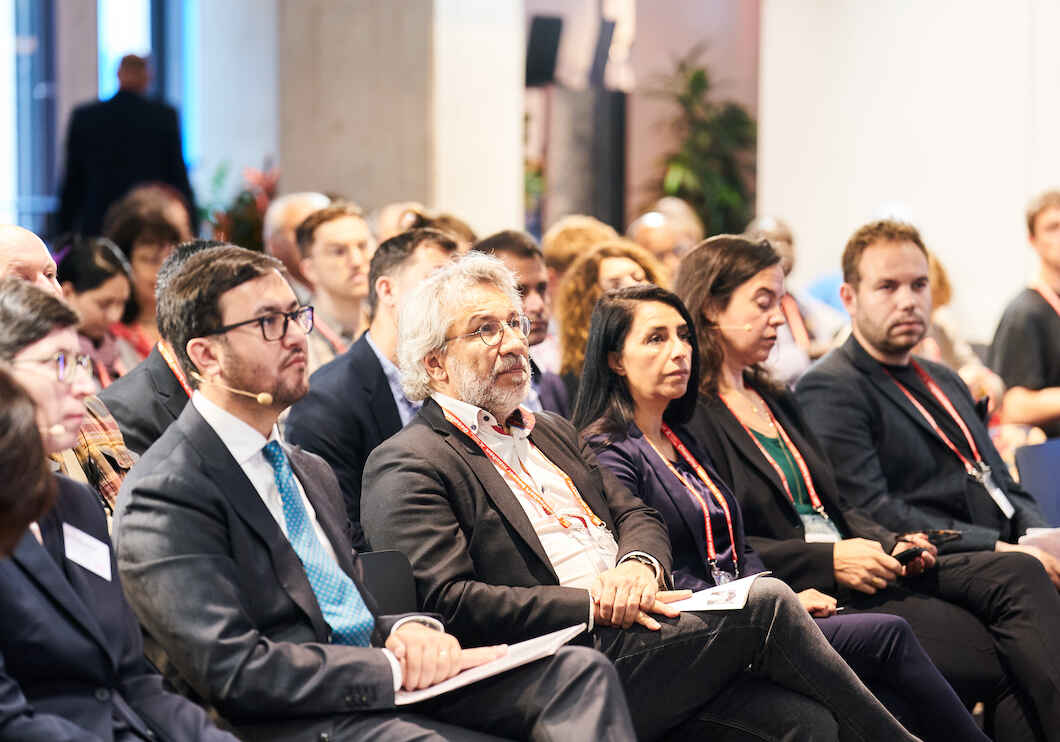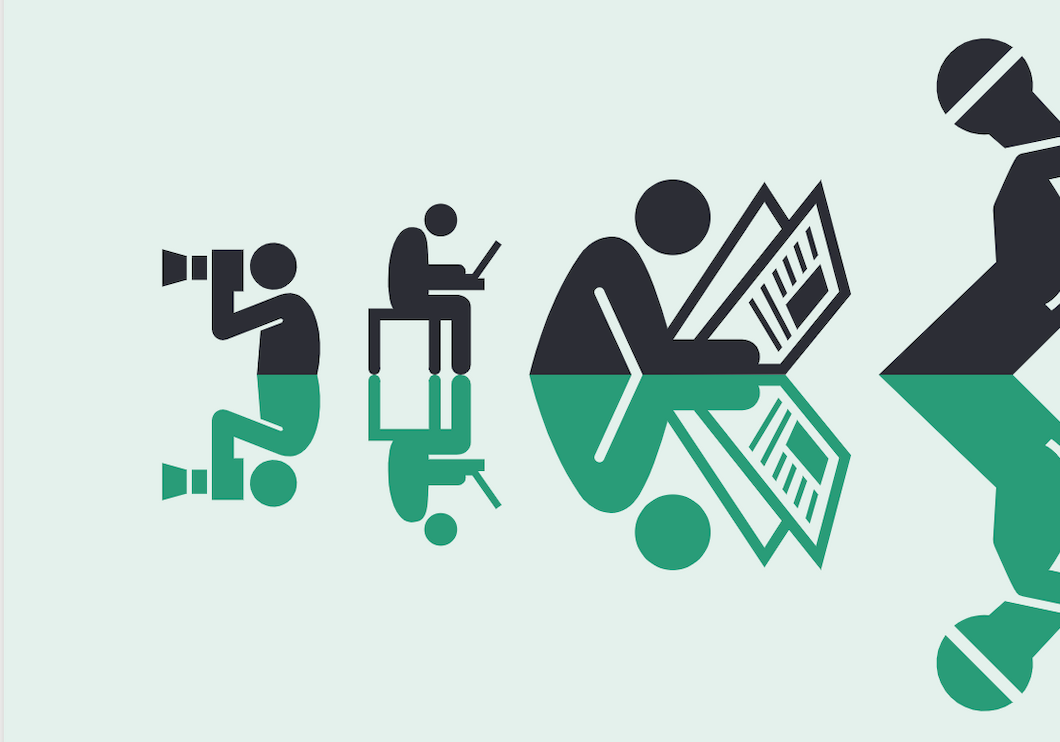
Körber-Stiftung
Exile Journalism in Europe
Exile Journalism in Europe. Current challenges and initiatives at a glance.
Dear readers,
As a follow-up to our first report about the situation of exiled journalists in Germany, this year we are focusing on Europe. This report is being published at a time when the issues of forced displacement and exile could hardly be more relevant in Europe. Russian President Putin’s war of aggression against Ukraine has forced millions of Ukrainian civilians to flee their homes. Many of these people are representatives of the media who were no longer able to work because their lives were at threat. The situation faced by independent journalism has also deteriorated dramatically in Russia itself. Repressions against regime critics and the
radical curtailment of freedom of the press are also forcing numerous journalists from Russia into exile.

Short or long-term support for exiles?
Not only the definition of journalism, but also the understanding of the term exile is becoming increasingly blurred. This point is rarely so clear as in the case of the Turkish journalist Can Dündar: Dündar knows that he can no longer return to Turkey because he faces arrest or even death if he does. But what about journalists who are merely threatened with arrest or court cases? The decision to go into exile is particularly difficult in countries that are not overt dictatorships but where freedom of the press is still under threat. In these countries, the consequences that journalists or their families might face are unclear. When does a journalist reach the point that they have to go into exile? These situations can be extremely stressful and a reason for temporary relocation.
Temporary relocation
Journalists, human rights activists and artists who are under threat or who are being persecuted can be removed from their current situation and brought to safety for a limited period. Experts refer to this as ‘temporary relocation’. Instead of permanently and suddenly leaving their country, temporary relocation enables exiles to move abroad for a short time to get out of the firing line, at least for a while. This helps them relax, recuperate and to go about their work undisturbed. US relief organisations such as Freedom House and the International Freedom of Expression Exchange (IFEX) already provide opportunities such as these, but European organisations are also increasingly offering temporary relocation – officially in the form of internships lasting several months.
Longer-term support
Relief organisations in many parts of Europe offer a wide range of support to people who need to permanently leave their home countries. These organisations have set up centres specifically for journalists in numerous places including Spain, France, the UK, Belgium, Germany, Denmark and Norway. In the south and east of the continent, however, help for exiled journalists is much rarer if not non-existent. More details are provided about some of these projects from throughout Europe on page 8. The support offered is diverse and begins in part even before a person leaves for exile. Some organisations, such as Reporters Without Borders, contact journalists who are planning to move into exile while they are still in their home countries. They help exiles to leave their homes, obtain visas and tickets for travel and even pick them up from the airport. Once in Europe, exiles need accommodation, help to cover the costs of living and, in some cases, psychological support, as they may have escaped war, hardship and prison. Homesickness and loneliness can also place a heavy burden on them.
‘The worst thing of all is being alone, far away from home and their loved ones’, says Vivienne Francis from the Refugee Journalism Project in London. All exiles struggle with these problems equally.
Financing
Donations cannot be expected to cover the costs of long-term support projects, such as costs incurred by providing secure housing. However, relief organisations that help exiled journalists particularly rely on donations as an important source of income. This leads to difficulties because donations fluctuate regularly and it places pressure on the organisations helping exiles. ‘It’s very difficult to plan for other people, if you don’t have that stability yourself’, says Katrin Schatz from the European Centre for Press and Media Freedom.
Alongside funding from private foundations, government funding is increasingly being made available to support exiled journalists and media. For example, the European Centre for Press and Media Freedom receives funds from the German federal state of Saxony and the city of Leipzig. However, federal funding for journalism is still in its infancy. Int autumn 2021, the federal government decided to implement a programme to support press freedom aimed specifically at journalists. The Minister of State for Culture and the Media, which is responsible for the programme, explains that it promotes projects including those that support programmes for exiled foreign journalists in Germany. The EU also awards increasing amounts of money to organisations that support persecuted journalists. For example, the Media Freedom Rapid Response (MFRR) project, which helps journalists living in the EU who have been threatened or attacked, is partly funded by the EU Commission. Some of the costs incurred by Protect Defenders are also covered by EU funds. However, governments generally find it difficult to support individual journalists and media outlets because of the need to remain politically neutral. In many countries, therefore, independent NGOs have adopted this role – and some are provided with government financing.
Ten ways to improve the situation of exiled journalists in Europe
- Information is needed about exiled journalists so that we can understand their current situation. This information is currently lacking. Therefore, government bodies and journalists’ associations need to provide the basis to collect the necessary information and enable continuous monitoring.
- The way in which journalists are being persecuted has changed. In addition to repression from authoritarian regimes, journalists are increasingly facing threats from political groups and organised crime. Civil society supporters and journalists’ associations need to respond to these new threats, such as by organising temporary relocations.
- Journalists in exile have diverse needs. Networks need to be created so that exiled journalists can establish themselves in their host countries and continue working. Relief organisations, therefore, should promote networking between exiled journalists, supporters and exiled editorial offices and platforms.
- Persecuted journalists need practical and accessible support in their host countries. This includes help finding accommodations and securing their residency status. They also need support to obtain residency permits and financing to cover their living expenses. In addition, they may also need assistance in overcoming the difficulties associated with living in a foreign country and psychological support due to trauma.
- Relief organisations often provide further training, workshops and courses for exiled journalists independently of one another. It would make sense for such organisations to work together, for example, by offering these courses at a single academy or on a specialised website. Relief organisations should coordinate their work and the assistance they provide.
- Digital security is a central aspect of the work of exiled journalists. Therefore, it is particularly important to provide information about digital security and the associated security tools.
- The fates of journalists who go into exile are as different as are their reasons for exile. Some exiled journalists continue to focus on their home countries, while others prepare themselves for a permanent stay in Europe. Therefore, career development for exiles needs to account for these two situations: some exiled journalists will need help integrating into their new society, whereas others will require support to return home.
- Exiled journalists are under pressure to keep working in their host country. Rapid action on the part of government and relief organisations is required so that exiled journalists can start work in their new country and continue professional training.
- Exiled journalists can still face persecution in their host country. Therefore, they are also in need of physical protection.
- Freedom of the press is under threat throughout the world. The situation in Europe has recently deteriorated. Nevertheless, most countries in Europe are comparatively free, peaceful and secure. Despite this, freedom of the press must be defended in Europe.




